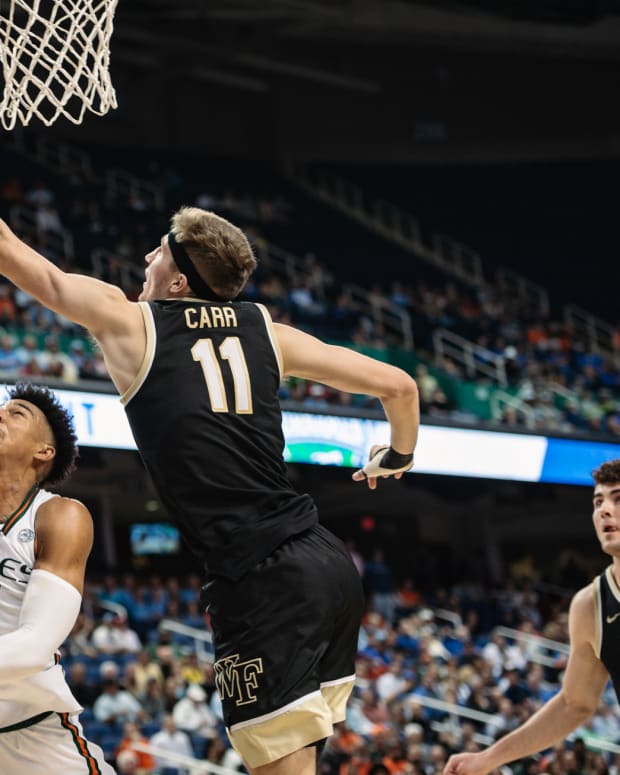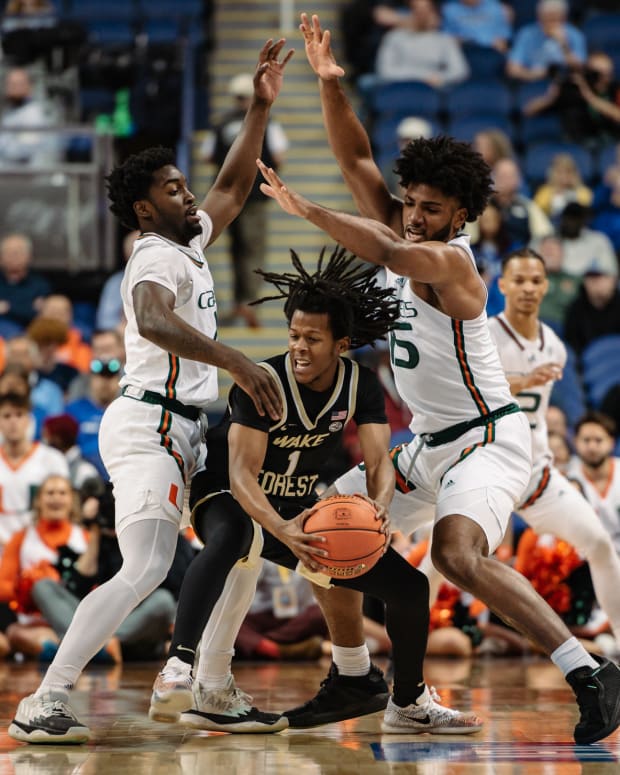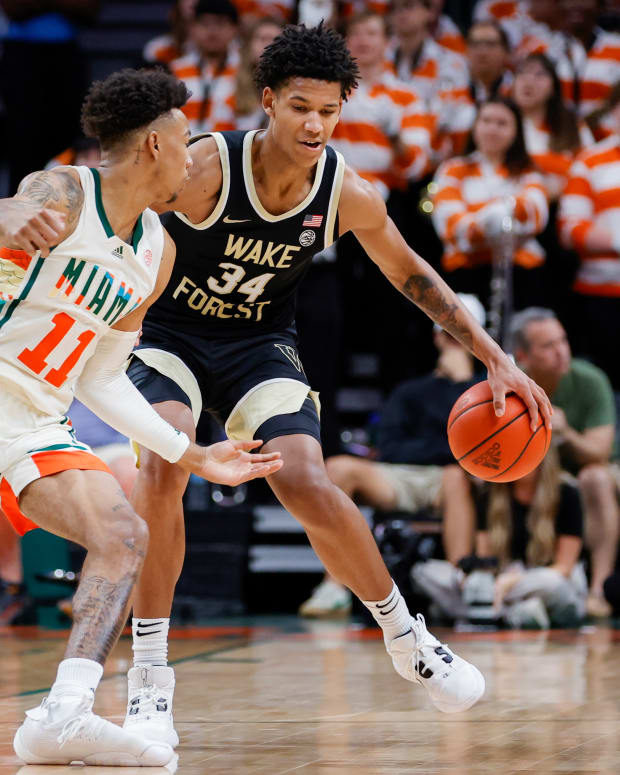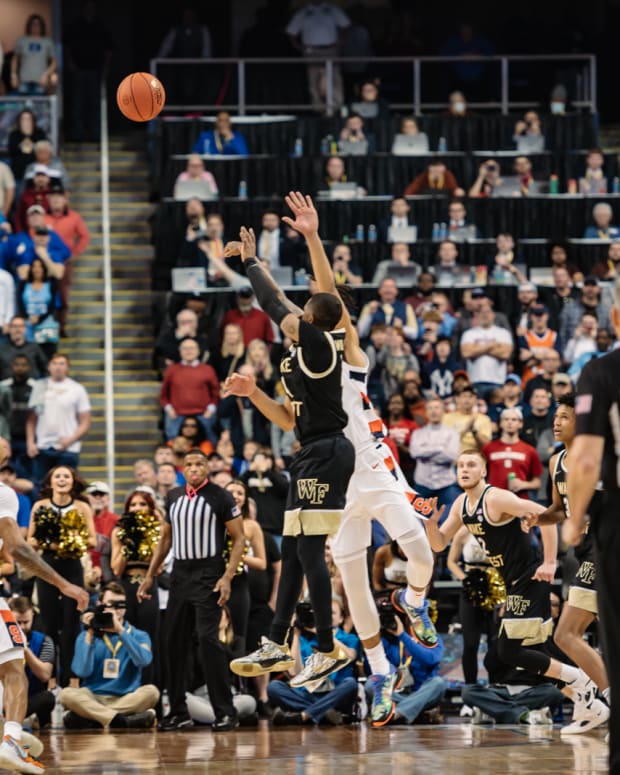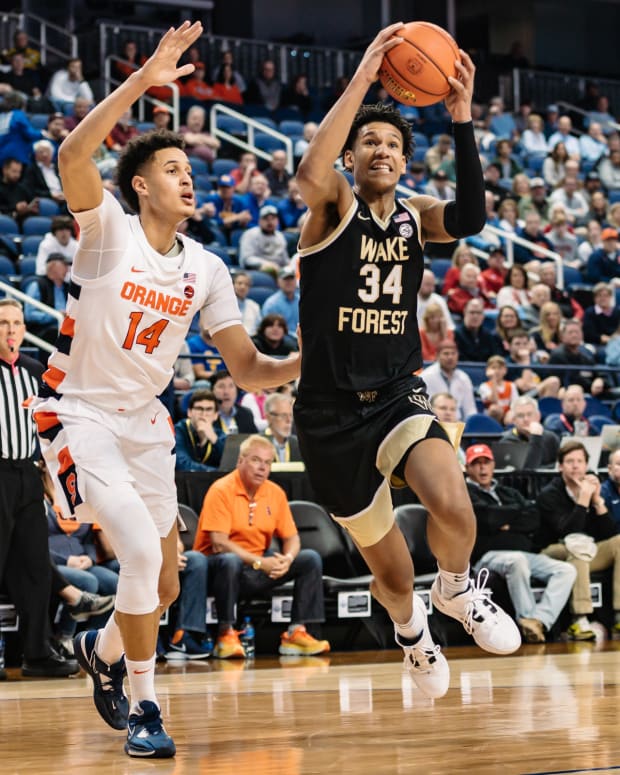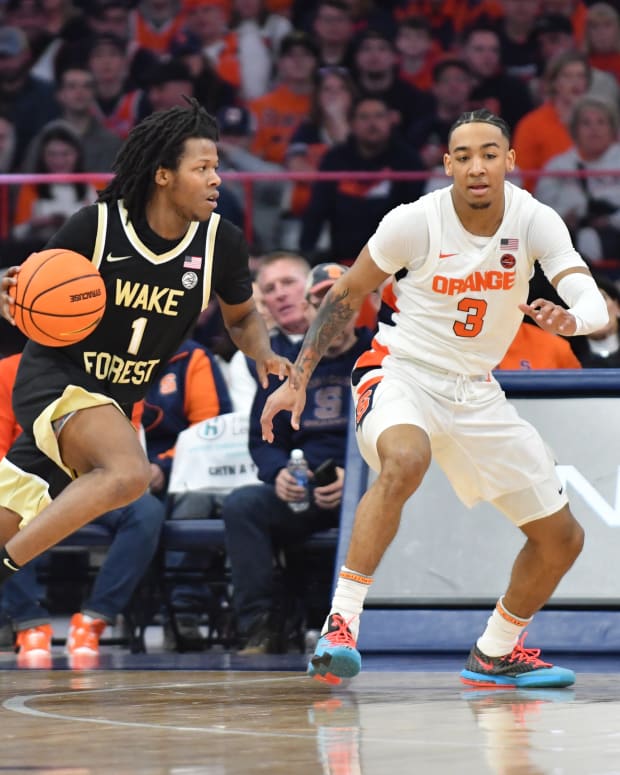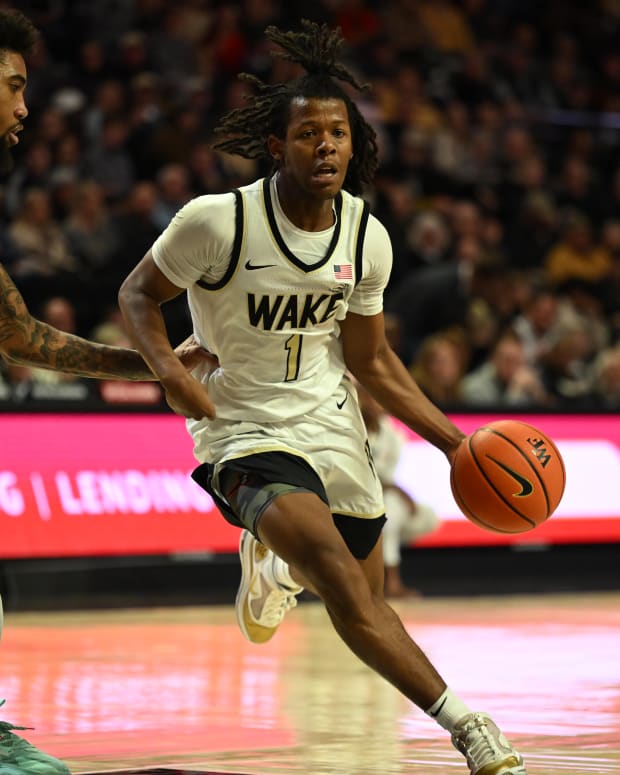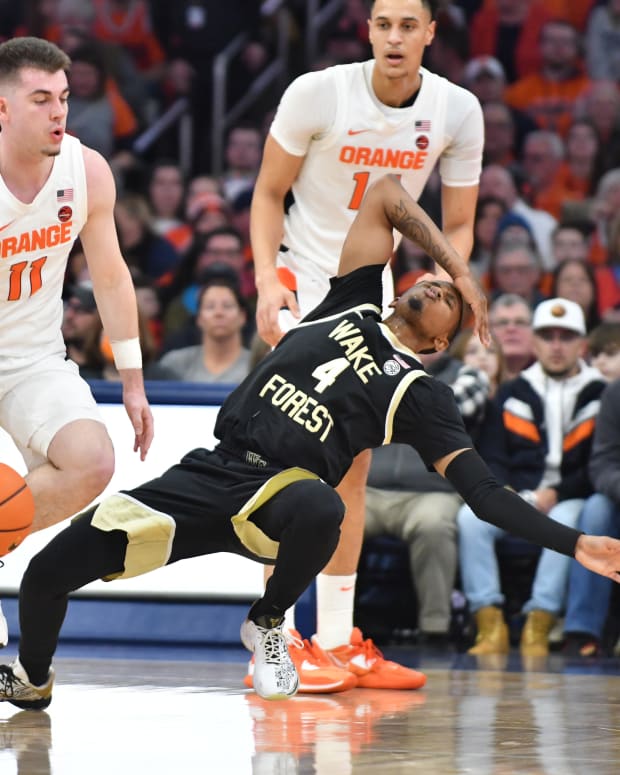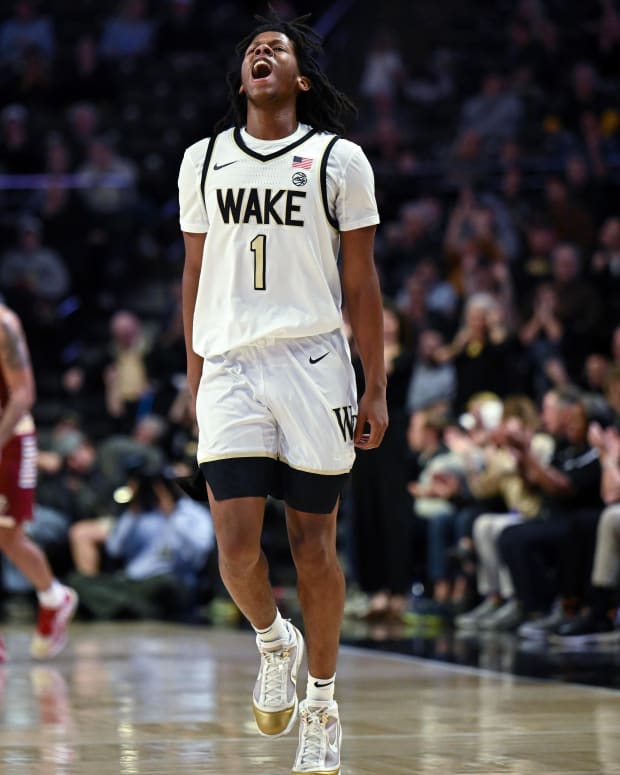Takeaways from Wake Forest's 90-75 win over Florida State
Wake Forest put forth one of their best offensive showings of the season on Wednesday night, shooting the lights out in a 90-75 victory over Florida State. Wake Forest is now 12-5 and 4-2 in the ACC — here’s what we learned in the victory.
Damari Monsanto is maturing
It seems like Monsanto’s name comes up in just about every one of our takeaways pieces, but the attention is especially deserved in this case. Monsanto torched the Seminoles to the tune of 6/7 from long range, scoring 22 points on just eight shots. He started off the game 6/6 and didn’t miss an attempt until the second half.
Certainly, the shooting display was impressive. Monsanto couldn’t miss and every shot looked in-rhythm with his trademark smooth release. However, what jumps out to me is the efficiency of his statline — 22 points on eight shots is remarkably difficult to accomplish. Often, when a player has the hot hand in the way Monsanto does, they fall victim to the dreaded heat check and chuck up a few bad shots in addition to the makes. Monsanto never did that. In fact, he looked to make the extra pass for most of the game and even chipped in a couple of nice assists. Wake Forest head coach Steve Forbes discussed Monsanto’s growth as a player after the game:
“He played a pretty good floor game for a guy who’s hot like that,” Forbes said. “He didn’t just go hunting every possession. He’s really matured in that area.”
Throughout the first half of the season, we’ve seen Monsanto develop from a spark player off the bench to a mainstay in the starting lineup. For a guy who’s heralded as a pure scorer, Monsanto makes some really heads-up plays on both ends, and it’s clear the team is better when he’s out there. It feels like a switch has flipped since the Appalachian State game, where Monsanto sat out after failing to meet Forbes’ standards in practice the week leading up to the game. Since then, he’s averaging 17.3 points per contest on 48.5% shooting. Monsanto discussed the change that’s taken place in his mentality over the last six games:
"It made me look in the mirror," Monsanto said of sitting out the App State game. "Things coach Forbes was saying how I have to change as a practice player and be more of a leader for the team."
If Monsanto can keep playing smart, efficient basketball, Wake will continue to be a tough out throughout conference play.
The Deacs are removing the scoring burden from Tyree Appleby
Last night marked the first time since 2005 that Wake Forest had three players score 20 or more points in a game. This is an encouraging stat in its own right, but the most surprising part is that Tyree Appleby, who leads the team in scoring with 17.8 ppg, wasn’t part of the trio. Rather, it was Andrew Carr (22 points), Monsanto (22 points) and Cameron Hildreth (23 points) who shouldered the scoring burden. Appleby didn’t play poorly by any stretch, finishing with 16 points and eight assists, but he wasn’t overly efficient (5/14 FG) and relied on his teammates to pick up the slack.
This, I hope, is a sign of the development of an increasingly balanced scoring attack for Wake Forest. Wake already has four players averaging in double figures, but the more evenly distributed the offense is, the better off they'll be. Appleby hasn’t been the leading scorer in the last three games, and the Deacs are 2-1 during that stretch. Appleby is a fantastic player and has dazzled with his scoring ability this year, but the team can get into trouble if they’re forced to rely too heavily on him. The LSU game comes to mind, where Appleby went for 26 on 11/13 shooting but no one else scored more than 13 and the Deacs fell by a basket in Atlanta after blowing a 20-point lead.
Having a plethora of capable scorers makes Wake Forest an even tougher out in ACC play and muddles the scouting report on them for opposing teams. I think Hildreth described the team’s mentality on offense well after the game:
"I feel like we have everyone on the team that can score," Hildreth said. "We have one-through-12 that can all get a bucket. If one person's not scoring, it's going to be someone else that steps up."
Dominance at home
With last night’s win, Wake Forest advanced to 9-0 inside the friendly walls of the Joel Coliseum. The Deacs have now won three ACC contests at home, including marquee victories against Duke and Virginia Tech. Though they’ve had to rely on late-game heroics at times (Utah Valley, Appalachian State), Wake is proving to be difficult to take down on their home hardwood.
In a year where the ACC has so much parity, defending home court becomes even more important. Every road environment is hostile, and Wake has struggled in opposing gyms this season, going just 1-3 in true road games. Granted, they’ve faced some daunting challenges away from home with games against UNC, Rutgers and ACC-leader Clemson, and the security blanket of winning at home has kept them afloat during a brutal stretch of the schedule.
The next stretch of home games will prove remarkably important for Wake — they take on Clemson, Virginia and NC State in their next three contests at the Joel.
Follow @DeaconsDaily on Twitter and Instagram for more Wake Forest content
